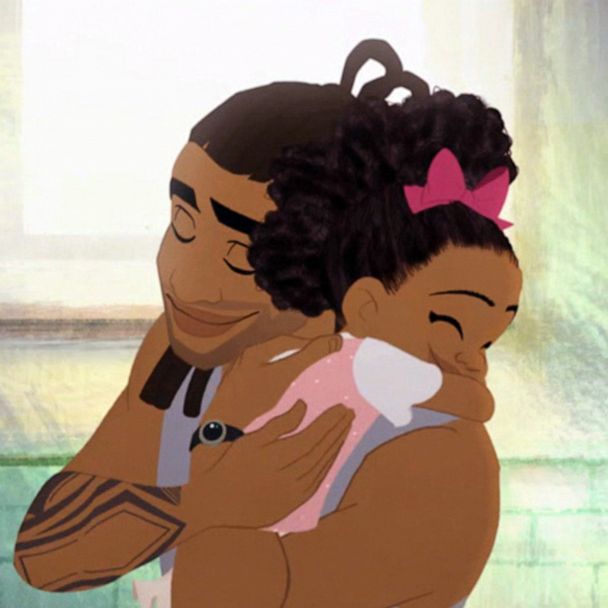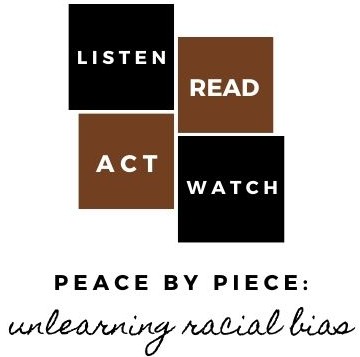This post is part of a year-long series. If my work is helpful for you, consider a contribution through Venmo to support this crucial work of unlearning racial bias.
Last week, I left you with several questions. One of them was whether you would set aside any part of your identity in order to be part of a movement for justice. As a mother, a Christian, a black woman, I have had to claw and scratch and fight for every aspect of my identity. I’ve been called white. I’ve had my faith questioned because I disagreed with someone else’s theology or interpretation of Scripture. I’ve miscarried a child. I’ve lived the pain that so many people feel when they finally discover the truth of their identity, only to have people whom they may love and trust, question them so much that they begin to question themselves.
I won’t set aside any part of my selfhood. No matter how much other people might want me to erase or minimize part of myself, I’ll show up as fully myself in all facets, no matter the task.
Aunt Jemima probably got more Google searches in this past week than any other time in the brand’s history, since the company that owns the name and its iconic image announced they’d be removing Aunt Jemima’s name and face. And although I did not know anything substantive about the brand’s history until last week, I did remember when the namesake’s head covering was removed years ago, I did find it easy to connect Aunt Jemima’s image to the mammy trope, and I did think of Kimberly Reese.

I love 90’s sitcom “A Different World” so much that I have whole episodes memorized. I own a t-shirt that declares I’m an alum of its fictional HBCU. Its characters, theme song, and storylines aired in syndication so often during after school hours when I was a child, that they are interwoven with my memories of growing up. So when Facebook blew up last week with news articles and opinions about Aunt Jemima’s announcement, I thought immediately about an episode of “A Different World” in which Kim Reese has a painful breakdown and tells her mentor Mr. Gaines about a childhood memory she associates with Aunt Jemima.
The episode, entitled “Mammy Dearest,” depicts the core cast of characters putting together a black history program that traces black roles in entertainment over time. Due to Kim’s dark complexion, insecurity, and the aforementioned painful childhood experience, Kim wants the Aunt Jemima-adjacent mammy caricature excluded from the show. In true 90’s sitcom fashion, all identity issues are illuminated and resolved within the show’s half-hour span. But the episode also touches on colorism, guilt that can result from ancestors who made decisions we cannot be proud of, and disagreements black people sometimes have among each other about how our collective history should be addressed. For these reasons, along with the current relevance of the episode, “Mammy Dearest” is the first resource I am suggesting that you watch this week.

My second suggested resource this week is dramedy “The Lovebirds.” When theaters nationwide closed because of COVID-19, Netflix swooped in and purchased this gem so we all could still enjoy it. This lovely romantic comedy stars the wonderful Issa Rae, of “Insecure” and “Awkward Black Girl” and “I’m rooting for everybody black” fame, and the hilarious Kumail Nanjiani, whom you may know from “Stuber” and “The Big Sick.” Because I love all things Issa Rae, and because my husband and I are an interracial couple, I knew from the first trailer that I wanted to watch this movie. So when it came out, we had a date night at home. We laughed heartily as well as exchanging sad face looks when the main characters hit relational snags.
As soon as the credits rolled, I began to wonder when was the last time I saw a movie like this: funny and honest and heartwarming. And starring an interracial couple whose different cultures are acknowledged but aren’t central to the plot. Essentially, I wondered the last time I saw a regular movie about regular people having regular problems (albeit in exceptional circumstances since they are inadvertently involved in a murder at the movie’s start). And I couldn’t think of the last time I saw an interracial couple on-screen, where their interracial couple status wasn’t The Main Thing. This makes “The Lovebirds” my second recommendation this week.

And finally, I want you to watch “Hair Love.” This beautiful, Oscar-Winning short from Matthew A. Cherry took my breath away the first time I watched it several months ago. In this short film, we see a young black father struggling to do his daughter’s hair. Everything about this seven minute feature is brilliant: gorgeous hand-drawn style animation, a young dad with tattoos and locs, a beautiful young gap-toothed daughter insisting her dad keep trying, and a final scene that will undoubtedly have you reaching for tissue.
As you watch this week’s recommended shows, I hope you’ll consider the following:
- What positive and negative portrayals of black Americans have you seen in movies, TV shows, and other media such as product branding?
- When was the last time you saw a movie starring an interracial couple, where race and culture were part of the plot but not its entirety?
- When brand names and images are changed in order to be more considerate of a diverse customer base, what feelings does this elicit inside you?
- What do you think is the importance of intentional, positive, affirming portrayals of black individuals and families?
- How might your own concept of self and family be different if you never saw positive portrayals of individuals and families that looked like you?
I hope you enjoy this episode, movie, and short film this week as you continue opening your mind to new ideas of what it means to be black in this country. And I hope you will bring an open mind back here next week, and we will keep working toward peace, one piece at a time.


Honey, you nailed it! You just nailed it! I love your writing, I love your insight! Lovebirds, is a show I totally adore, too!
I love LOVEBIRDS!! I am seeing more and more interracial couples in TV ads, especially. My first thoughts were, FINALLY, real life. This is really a subpar comment for an important issue.
Families need to be depicted as they are. I am blessed to have a rainbow family. I wish I had the right words to say right now. Please forgive me, for being so brief.
Glad you enjoyed the post 🙂